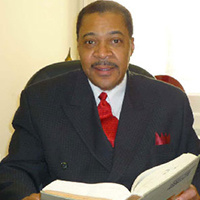Philadelphia Timeshare Lawyer, Pennsylvania
Sponsored Law Firm
-
 x
x

Click For More Info:
-
Mitchell Reed Sussman & Associates
410 South Rampart Suite 390 Las Vegas, NV 89145» view mapTimeshare 45+ Years of Experience
The Law offices of Mitchell Reed Sussman & Associates has been in business for over 45+ years specializing in real estate litigation.
800-814-6930
Not enough matches for Philadelphia Timeshare lawyer.
Below are all Philadelphia Real Estate lawyers.
Ryan Scott Zavodnick
✓ VERIFIEDRyan Zavodnick is an experienced personal injury attorney who has handled a wide variety of personal injury matters in Philadelphia, PA, and the surro... (more)
Edwin M. Goldsmith
✓ VERIFIEDRepresentation of parties in civil litigation in Philadelphia and surrounding counties and Federal District Court for the Eastern District of Pa. and ... (more)
Angelo Leroy Cameron
✓ VERIFIEDAngelo graduated from St. Joseph’s University, Philadelphia PA, with a Bachelor of Science in Political Science, Latin American Studies and Economic... (more)
Gary Schafkopf
✓ VERIFIEDGary Schafkopf is a practicing lawyer in the states of Pennsylvania and New Jersey specializing in Business, Employment, and Real Estate.
Frank Lawrence Turner
✓ VERIFIEDFrank is an attorney with a solo practice located in Philadelphia. He represents small business owners, landlords and tenants, as well as small corpor... (more)
Brian S. Chacker
FREE CONSULTATION
CONTACT Mitchell Reed Sussman Las Vegas, NV
Mitchell Reed Sussman Las Vegas, NV





